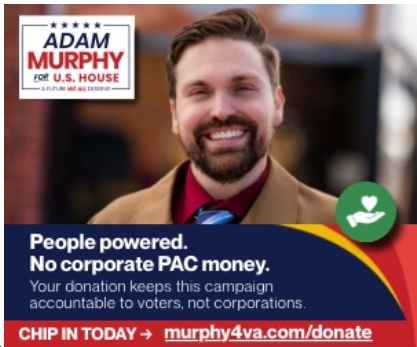I really hate it when I keep agreeing with former VA Lt. Gov. Bill Bolling, a Republican and Trump supporters, but here we are…LOL. Today, it’s Bolling’s take on the idea of getting rid of the “hated ‘car tax'” (see below for his full Facebook post). My only major differences/quibble with Bolling’s analysis is that ditching the “car tax” seems to have mostly been a Republican thing, at least since Jim Gilmore ran on it in 1997 (and defeated Democrat Don Beyer, in large part because of this specific issue). But, other than that, I *strongly* agree with Bolling that:
- Talking about getting rid of the car tax is “nothing more than a cheap political ploy”
- This tax “has been around for years” and “is a major source of funding for local governments in Virginia…it could take an additional $3 billion/year to fully eliminate the car tax and provide an equivalent ongoing revenue stream to local governments.”
- If we ditch the car tax and don’t make localities whole, they “would have to cut spending on local services, including public education and public safety, by $3 billion, which would be devastating.”
- Bottom line: “The car tax isn’t likely going away, and if it does it will be replaced with some other form of taxation. It’s all a political shell game and smoke screen.”
On, and one more point: obviously, we need revenues to fund essential services, from education to healthcare to transportation, etc. Which is why the government needs revenues. So it then comes down to HOW to raise revenues, and the options are basically sales taxes (which are regressive), income taxes (which CAN and SHOULD be progressive, depending on how they’re structured), estate taxes (a highly progressive tax, on super-wealthy estates ONLY, which Virginia foolishly eliminated back in 2007), real estate and personal property taxes of various types (which can be progressive, regressive, or relatively neutral, depending upon how they’re structured), “Pigouvian” taxes” (“a tax designed to correct for negative externalities, which are costs that are imposed on society but not reflected in the market price of a good or service”); etc.
Now, personally, I’m a strong supporter of taxation being some combination of progressive and “Pigouvian.” In the case of the car tax, it’s definitely “Pigouvian,” as car ownership comes with MASSIVE negative “externalities” that aren’t captured by the market, but it CAN be regressive…and should be structured in a way that it’s both “Pigouvian” AND progressive, if at all possible. But getting rid of completely, without coming up with alternative revenue sources, would basically cripple local governments, and why on earth would we want to do that???
***************
MORE CAR TAX HYPE
Both Winsome Earle Sears and Abigail Spanberger say they want to eliminate the hated “car tax.” Nobody likes the car tax, including me, but let’s get real. This is nothing more than a cheap political ploy.
The car tax, or personal property tax on cars and trucks, has been around for years. It is a major source of funding for local governments in Virginia.
Estimates are that it could take an additional $3 billion/year to fully eliminate the car tax and provide an equivalent ongoing revenue stream to local governments.
If the car tax were simply eliminated, and no equiv[a]lent ongoing revenue stream were provided, local governments would have to cut spending on local services, including public education and public safety, by $3 billion, which would be devastating.
The General Assembly passed legislation to phase out the car tax in 1998. However, that program was capped at $950 million/year in 2001 due to spiraling cost estimates that significantly exceeded initial projections.
Many politicians have promised to fully eliminate the car tax since that time, but none have succeeded, and neither will Sears or Spanberger. It’s just political hype.
If state leaders were serious about eliminating the car tax, they would have to give local governments the ability to make up the lost revenue with new forms of taxation. But they won’t do that because it would be perceived as authorizing a tax increase.
And they’re not going to cede existing state revenues to local governments because they don’t want to loose control of those revenues, which they need to fund state programs.
So don’t fall for the hype. The car tax isn’t likely going away, and if it does it will be replaced with some other form of taxation. It’s all a political shell game and smoke screen.


![Video: Regarding the 2025 VA Election – Which Democrats Won in a Landslide – Trump Points Insanely/Falsely to “Cheat[ing]”](https://bluevirginia.us/wp-content/uploads/2026/01/weigeltrumpspanbeger-238x178.jpg)









